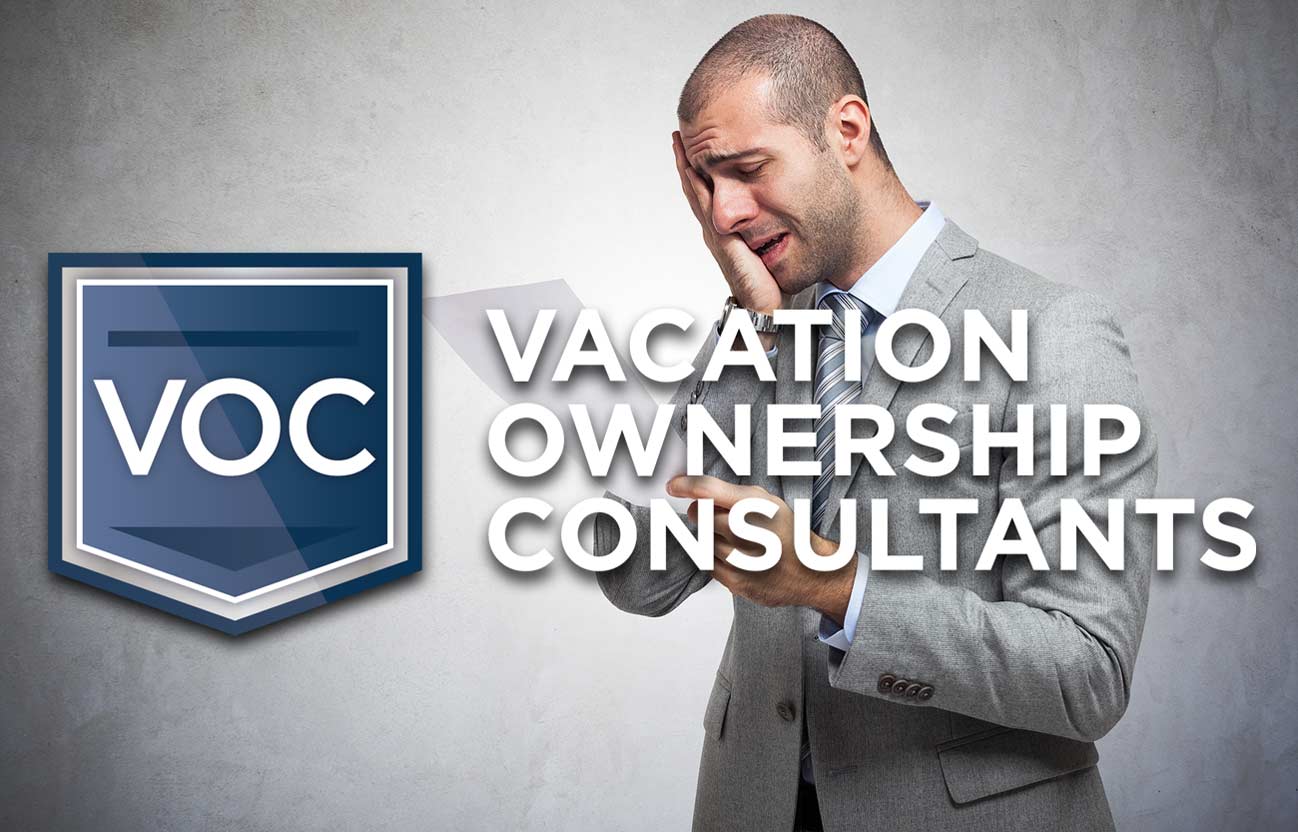Before the world was overrun by the fear of a mysterious respiratory infection, some vacation owners were already at a loss for words. Since purchasing the can’t miss, once-in-a-lifetime product, many have awaited the experience they were promised. Now that travel has reached an abrupt level of stagnancy, concern has begun to set in. Will they ever be able to reserve their affordable, convenient timeshare package? Today, many timeshare owners pay out of fear and hope because they have no choice. But how long will this last?
The pandemic has given buyers a new perspective on the liability of the expense. Thousands have found themselves further trapped in their agreement with little to look forward to. Sadly, they remain on the hook because, simply put, the timeshare industry is full of lies. This is why it’s important that all vacation owners critically inspect every timeshare claim these days.
At the same time, you should know that we’re not in business to pull your leg. Not every entity is out to take advantage of your situation and the vulnerability it brings. Since 2014, we’ve spoken to thousands of disgruntled owners about their timeshare problems – and it’s not something we enjoy. Nearly every buyer believes they’re in a hopeless situation with no one to trust. 2020 has created more desperation than ever.
Answering Timeshare Questions Provides Certainty.
No matter how straightforward we are, many find it easier to continue paying the timeshare. Taking a chance on a new risk they can’t adequately gauge is a tough thing to do. We’ve found that this is especially difficult for disabled, handicap, aging or unemployed owners. The uncertainty of a limited lifestyle can be devastating.
Even when the financial burden of a timeshare easily absorbs most of their income (if they have any at all), the thought of further victimization clouds their judgement. So, we’ve come to the conclusion that the best thing we can do is answer their questions and expose the lies they’ve been fed. Since far too many timeshare owners pay out of fear, they have to be able to trust our motives.

Truth be told, many continue paying the timeshare because they don’t believe exit companies can or will help them. Whether they’ve tried to sell, terminate, donate or rent the interval, most “solutions” backfire. They literally can’t afford another mishap. All they want to do is believe they’ll be able to use the product the way it was presented. But if they know someone can end their obligations for good, will timeshare owners pay out of fear anymore?
Scare Tactics Keep Timeshare Owners At Bay.
No matter the current state of an owner, timeshare companies have been focused on preventing them from getting out of their agreements for decades. Even news releases are geared towards slander. The narrative has been fine tuned and perfected over time. For the most part, timeshare owners pay out of fear because they don’t know this. So let’s take a look at some of the concerns that come with timeshare cancellation.
1. Can Automated Payments Be Stopped?
Before owners begin the process of getting rid of their timeshare, many worry about automatic payments. But if they can no longer afford their timeshare then they may need to simply call the timeshare and request to turn automatic payments off. While service reps will do what they can to make timeshare owners pay out of fear, auto payments are almost never required. They can even contact their financial institution for advice on how to ensure payments are not auto drafted if they choose to.
While timeshare auto debits are oftentimes declined under one name or for a specific dollar amount, owners may find their account still being deducted. In this case, it’s understood that the timeshares will often change the name or dollar amount to ensure auto debit payments are received. Asking financial institutions how to ensure debits aren’t automatically pulled from bank accounts is a good way to go.
2. Will Collections Devastate Credit Scores?
Oftentimes unhappy buyers remain compliant in order to protect their credit and not be sent to collectors. But what’s the point of protecting credit scores if timeshare payments are already handicapping them? Many timeshare owners may be negatively impacting future lending needs by taking on the large mortgage or third party lending used for down payments and monthly payments. Large balances can impact their debt to income (DTI), and credit utilization.
Far too many people care more about credit scores than standing up to a company that’s robbing them of the experience they were promised. Even if they’ve been lied to about availability and their complaints constantly fall on deaf ears, many timeshare owners pay out of fear of consequence.

If Something Isn't Fair, It's Worth Looking Into.
It doesn’t seem right that someone with good credit character should be disciplined for an unregulated sales staff that’s heavily incentivised. It’s not like complaints for omitted information, fraud and misrepresentations are uncommon. One can easily assume timeshares are fully aware of what takes place. All you have to do is look at the language of most timeshare contracts, it is almost always one-sided and vague.
The license to lie clause is prevalent in many agreements in order to protect resort chains and their contractors from complaints. Almost every timeshare agreement has an owner’s signature that acknowledges they are not making the purchase based on any verbal promises. Moreover, most buyers aren’t even given the time to adequately review the terms of their 60+ page agreement.
In turn, verbal promises often end up proving to be the exact opposite as written agreements. Because of this, owners need to understand that they may have rights to help protect them against collection efforts and credit violations – should they occur. When they don’t timeshare owners pay out of fear.
3. What to do About 3rd Party Financing?
Most timeshare sales presentations end with unsuspecting buyers signing up for a $20k-$40k financed product. The down payment amount which is typically between $5k-$20k is commonly charged to a branded credit card that is backed by a third party bank such as: Comenity Bank, Synchrony Bank, Barclays, American Express and PayPal Credit. Sometimes, credit cards are used to cover monthly or annual fees.
The unfortunate aspect of this third party financing is that a timeshare is sold as an affordable option. Families that have a difficult time making vacations a priority in their budget usually take the bait through a loan. Although it would appear to be ethically immoral to finance a product with interest as high as 17.9% (for something they may not even be able to use), timeshares allow it. In the end, timeshare owners pay out of fear because of the crippling repercussions of taking out a loan. But they don’t have to feel this way.
If a new timeshare owner feels that they were victim of timeshare sales fraud (or unaware they were sold revolving debt and not provided required disclosures), they should voice this to their credit card company. An owner may also have the ability to hire a debt settlement attorney to assist them in resolving the financed dispute. Some owners choose to handle it on their own by ceasing payments and negotiating with the creditor directly.

4. Should Liens or Pursued Judgements Cause Worry?
Timeshare companies will say anything to scare you from canceling vacation ownership. This is why it’s so important to hire a reputable exit firm you can trust. We’ve processed many calls where owners have simply waited too long to address their timeshare default issue or seek assistance. Failing to communicate with the resort or find some sort of representation rarely bodes well for most owners. By the time threats are made or consequences are administered, many timeshare owners pay out of fear – or find a way to adhere to demands.
Most resources are limited if an owner chooses to ignore the debt and not seek assistance. Sometimes an inquiry will send in court documents they received (where the timeshare has filed to pursue the unpaid amounts) for review. The paperwork is almost never filed where a timeshare owner resides. In other words, most vacation owners travel out of state (where they purchased the timeshare) and the contract is usually governed where it was purchased or in the timeshare’s legal safe haven (such as Florida).
The longer an owner fails to realize this and chooses to ignore it, the easier it may be for a resort to get a judgment and pass it across state lines to collect. That is why it is important to address their timeshare obligation and not walk away from it out of spite. Whether timeshare owners pay out of fear or stop making payments altogether, they’re not solving anything.
5. Fearful of Escrow companies in the Exit Realm?
Unfortunately, escrow companies are not regulated in the timeshare exit marketplace. One may relate this concept to the purchase of a new home but these are separate operations. Either way, many timeshare escrow companies provide an agreement which states when the funds will be released, From what we have seen, this is paid out before expectations are even met as the exit company has deemed them to be released.
It is important for owners to verify the details of any escrow company affiliated with a third party relief agency. Investigating escrow companies with reputable resources (such as the BBB, Secretary of State or Corporation Commission, etc) to see where they do business is smart. If you’re able to identify what a successful completion looks like, get it in writing. This way, you can make sure the money is released to the exit service only if expectations are met. Otherwise your money is spent the same as if you had paid the exit company directly for them not to perform as expected.
6. Leery About Cancellation Guarantees?
Same as retail travel sites, the cosmetics of one exit company website to the next usually appear to be the same. It can be hard to know which is real and which is phony. However, the operation and ethos from one company to the next couldn’t be more different. If a timeshare owner relies on power words such as “guarantee” or “escrow”, they are likely in for a rude awakening. Many faulty operations promise “money-back guarantees” but have no intention of honoring this with a refund.

Research often shows which companies (or entrepreneurs) routinely fail to follow through on their promises. Sadly, plenty of operations have gone out of business or filed bankruptcy after making promises. Signed agreements with guarantees almost always become obsolete once bankruptcy is filed.
That is why it is so important to deal with companies in any industry who are reputable and can prove they follow through on their promises, which typically need years in business to prove this. When timeshare owners pay out of fear, they’re choosing to not look for companies like ours to help them.
7. Are All Relief Companies Questionable?
The short answer here is “No” – but only a small percentage are proving to be reliable. Like we mentioned before, the fear of exiting with a bad service is real and warranted. But, effective research will remove your blinders. Most people don’t make the time to find a way to effectively research. It’s easier to live in assumption and believe you’re avoiding letdown.
As the COVID-19 pandemic ensues, more and more fraudulent cancellation operations are springing up. They’re eager to take advantage of you. Don’t let them. Take some time to read our articles and garner some perspective. In time, you’ll be able to pinpoint selfish entities that manipulate owners with lead generation tactics that obtain and sell your data. It’s not hard to tell if a business is interested in delivering you from your timeshare burden. Hopefully you can tell we are.
VOC Wants to Eliminate Timeshare Burdens.
As we wrap up this article, there is a lot of information to ponder. While you might be thinking about ending your obligations for good, hesitancy may still linger. That’s okay, everyone is different. But when timeshare owners comply out of fear, the one that wins is the timeshare.
So when you’re ready to discuss your options, we’d love to help point you in the right direction. Even if our services aren’t a good fit. Every owner deserves to at least make a confident decision. A free consultation is only a phone call away.







